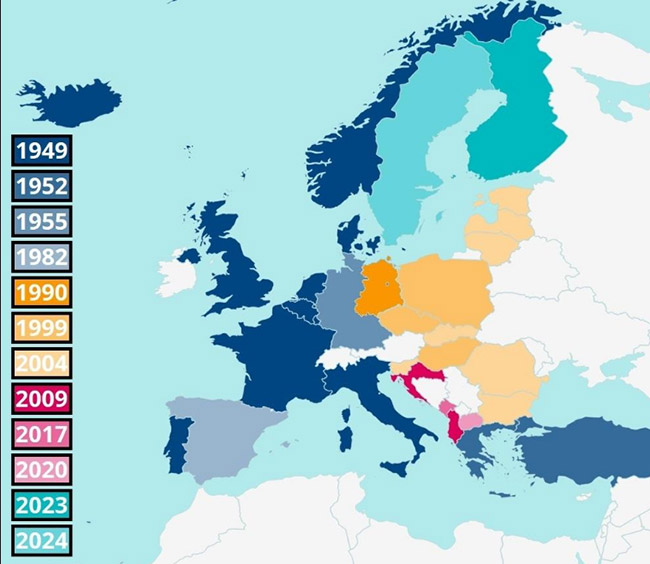 Enlargement of NATO from 1949 to 2024. Nerevending story?
Enlargement of NATO from 1949 to 2024. Nerevending story?
The inevitable demise of the Alliance has even deeper roots — roots having to do with the shift in polarity over the past decade or so, stresses The Hill.
NATO was conceived in a bipolar world to address the reality of superpower competition. The rigid alliance structure and focus on collective defense were well-suited to deterring Soviet aggression.
With the demise of the USSR in 1991, NATO adapted to the new realities of the so-called “unipolar moment.” The absence of a major peer competitor allowed the U.S. to maintain its dominant position within the Alliance, and NATO morphed into an instrument of American primacy.
But the unipolar moment has definitively passed and we have entered a new geopolitical era — one defined fundamentally by multipolarity. The rise of China, a resurgent Russia, a more assertive India and the rise of other regional powers has created a more complex, chaotic and competitive security environment.
Here’s the problem for NATO and its cheerleaders: Adapting the Alliance to the new multipolar reality — reconstructing and repurposing it so that it is fit for purpose in an “unbalanced multipolar world”— is likely going to prove perhaps impossible, and certainly not worth the investment of time, money and energy it would require.
Why? Because, the rigid, consensus-based decision-making process of NATO, designed for a world with a singular threat, is ill-suited for the fast-paced, dynamic environment of a multipolar world. The rise of new powers with competing interests makes it difficult to forge consensus on a range of security issues. The focus on collective defense against a single adversary no longer reflects the diverse threats facing the Alliance.
A more nimble approach is needed. In contrast to the ossified structures of formal alliances, flexible working partnerships on specific issues offer greater promise. Such partnerships would enable the U.S. to maintain freedom of maneuver and build ad hoc coalitions tailored to address emerging threats. Examples like AUKUS, the Quad and various regional security organizations demonstrate the potential of states nimbly converging around shared interests on specific issues.
While established alliances may retain a marginal role in this new world order, their relevance will likely diminish. The question for the U.S. and its European allies is not whether NATO can be saved, but whether it should be.
read more in our Telegram-channel https://t.me/The_International_Affairs

 11:17 10.07.2024 •
11:17 10.07.2024 •






















